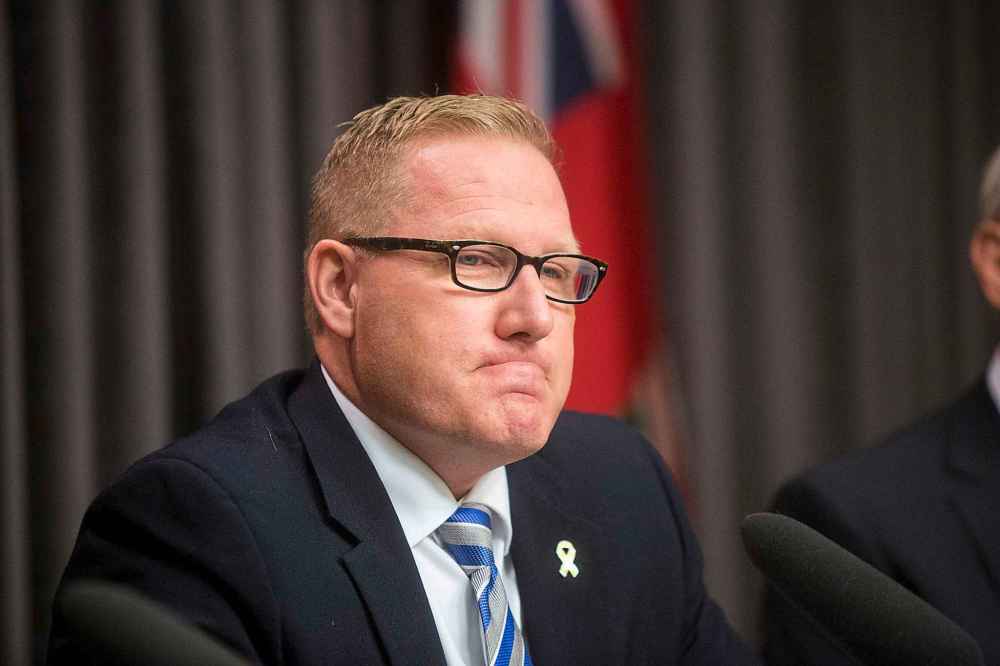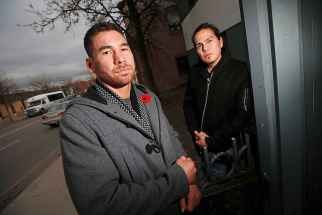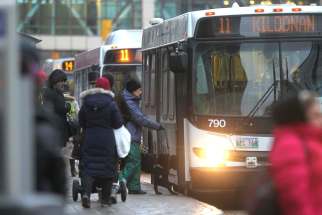Manitoba has spent $16M on private consultants since Tories took power
Read this article for free:
or
Already have an account? Log in here »
To continue reading, please subscribe:
Monthly Digital Subscription
$0 for the first 4 weeks*
- Enjoy unlimited reading on winnipegfreepress.com
- Read the E-Edition, our digital replica newspaper
- Access News Break, our award-winning app
- Play interactive puzzles
*No charge for 4 weeks then price increases to the regular rate of $19.00 plus GST every four weeks. Offer available to new and qualified returning subscribers only. Cancel any time.
Monthly Digital Subscription
$4.75/week*
- Enjoy unlimited reading on winnipegfreepress.com
- Read the E-Edition, our digital replica newspaper
- Access News Break, our award-winning app
- Play interactive puzzles
*Billed as $19 plus GST every four weeks. Cancel any time.
To continue reading, please subscribe:
Add Free Press access to your Brandon Sun subscription for only an additional
$1 for the first 4 weeks*
*Your next subscription payment will increase by $1.00 and you will be charged $16.99 plus GST for four weeks. After four weeks, your payment will increase to $23.99 plus GST every four weeks.
Read unlimited articles for free today:
or
Already have an account? Log in here »
Hey there, time traveller!
This article was published 07/11/2018 (2593 days ago), so information in it may no longer be current.
Manitoba’s Progressive Conservative government has ordered more than $16-million worth of studies by private consultants since coming to power, seeking advice on everything from health system reforms and cannabis retailing to the sustainability of the horse racing industry.
The close to 20 studies tabulated by the Free Press are by no means an exhaustive list — all governments engage outside experts on numerous issues — but include some of the more high-profile efforts by the Tories to enlist help to shape policy and/or drive down costs.
It includes KPMG reviews of the sustainability of the health-care system and the government’s fiscal performance, each at a cost of $750,000, and a recently awarded contract worth $6.3 million to Pricewaterhouse Coopers to review government tendering practices.
Provincial studies
Health System Sustainability & Innovation Review (KPMG)
Cost: $749,000
Timeline: announced November 2016, completed in January 2017 (Phase 1) and March 2017 (Phase 2)
Made public: partially released December 2017
Virgo Mental Health and Addictions Review
Cost: $194,050
Timeline: completed March 31
Made public: yes
Health System Sustainability & Innovation Review (KPMG)
Cost: $749,000
Timeline: announced November 2016, completed in January 2017 (Phase 1) and March 2017 (Phase 2)
Made public: partially released December 2017
Virgo Mental Health and Addictions Review
Cost: $194,050
Timeline: completed March 31
Made public: yes
Health Wait Times Task Force
Cost: $150,000
Timeline: completed November 2017
Made public: yes
Manitoba Fiscal Performance Review (KPMG)
Cost: $750,000
Timeline: released October 2017
Made public: yes (with limited exceptions relating to confidentiality of contributors)
Pricewaterhouse Coopers Procurement Modernization Strategy
Cost: $6.3 million
Timeline: announced October, three-year initiative
Made public: details to come, government says
Constitutional opinion from Brian Schwartz on carbon pricing
Cost: $40,000
Timeline: announced August 2017, completed October 2017
Made public: yes
KPMG P3 Business Case – Manitoba Schools Project
Cost: $287,000
Timeline: announced August 2017, to have been completed December 2017
Made public: province promises to do so in future
Economic Development Strategy (Deloitte LLP)
Cost: $150,000
Timeline: completed December 2017
Made public: yes
Look North Consultation
Cost: $63,714
Timeline: completed October 2017
Made public: yes
Optimus/SBR Fairness Report (Cannabis retail)
Cost: $17,386
Timeline: completed July
Made public: yes
MLT Aikins Policy Review of Workplace Harassment and Sexual Harassment Policies, Practices and Procedures
Cost: $46,000
Timeline: announced February 2018, completed summer 2018
Made public: yes
Boston Consulting financial review of Manitoba Hydro
Cost: About $4.3 million
Timeline: completed September 2016
Made public: yes
Economic review of Manitoba Hydro’s Keeyask and Bipole III projects, conducted by Gordon Campbell
Cost: $2.5 million
Timeline: announced October, to be completed by December 2019
Made public: It will be, government says
Fisheries review by Signature Mediation
Cost: $150,000
Timeline: reported from October 2016 to March 2017, posted November 2017
Made public: yes
Sustainability review of Manitoba Horse Racing Industry
Cost: $135,000
Timeline: report is completed
Made public: government plans to release it soon
Colleges review by Higher Education Associates
Cost: $207,000
Timeline: announced June 2017, completed March
Made public: yes
Social Impact Bonds strategy by MaRS Centre for Impact Investing
Cost: $150,000
Timeline: announced October 2017, to begin in early 2018
Made public: no
CancerCare Manitoba Operational Review
Cost: unknown
Timeline: to be awarded in January, report due 12 weeks later
Made public: minister has said it will not be released
Total: $16.2 million
— sources: government of Manitoba, media reports, freedom of information requests
Not all consultant contracts that have made the news are high-cost. For instance, the government paid University of Manitoba law Prof. Brian Schwartz $40,000 last year for a constitutional opinion, as it devised its made-in-Manitoba carbon pricing plan.
The latest high-profile external study to come to light is the proposed operational review of CancerCare Manitoba. A request for proposals has been issued, and the government plans to award the contract in late January. No cost estimates have been released.
Finance Minister Scott Fielding says the studies are needed because the previous NDP government “systematically mismanaged the province for 17 years,” costing taxpayers a fortune.
“As a result, we are calling on experts to provide their advice on fixing the province’s finances on a number of fronts and strengthening the services Manitobans rely on,” he said in a statement.

“We will continue to seek expertise, new ideas and best practices that are globally recognized.”
NDP Leader Wab Kinew said the danger of hiring outside consultants is decisions on health care, for instance, are being made by accountants, as opposed to health-care experts.
“The decisions (are) just being made by somebody looking at a spreadsheet,” Kinew said.
That has led to recommendations that may produce short-term savings but may wind up leading to higher long-term costs, he said.
He cited a recommendation to reduce government-funded physiotherapy services as an example. Cutting physiotherapy services could lead to repeat hospitalizations and greater long-term system costs, not to mention reducing the patient’s quality of life, the NDP leader said.
Winnipeg political scientist Paul Thomas said there has been a trend in recent years by governments to rely increasingly on outside consultants as they reduce the number of in-house policy analysts.
New governments such as Manitoba’s — was elected in 2016 — tend to use outside consultants more than more established administrations because they may fear senior bureaucrats will resist reforms, he said.
Outside consultants tend to “do the bidding of the political masters,” Thomas said. “If you’re in the consulting business, you don’t want to burn your bridges by saying to government, ‘There’s far less money to be saved here, and these programs are not as bad as you think they are.’
“Many of the studies being requisitioned by governments today are efficiency or value-for-money audits,” Thomas said.
The large consulting firms will first send in accountants and business experts to come up with a game plan, and then offer the services of more broadly trained policy and management consulting experts within the same firm to implement it.
“It’s become a real growth industry within the public sector,” Thomas said.
A review by the Free Press shows the Civil Service Commission and the Department of Finance spend the most of any government departments and branches on consulting services.
larry.kusch@freepress.mb.ca
jessica.botelho@freepress.mb.ca

Our newsroom depends on a growing audience of readers to power our journalism. If you are not a paid reader, please consider becoming a subscriber.
Our newsroom depends on its audience of readers to power our journalism. Thank you for your support.









